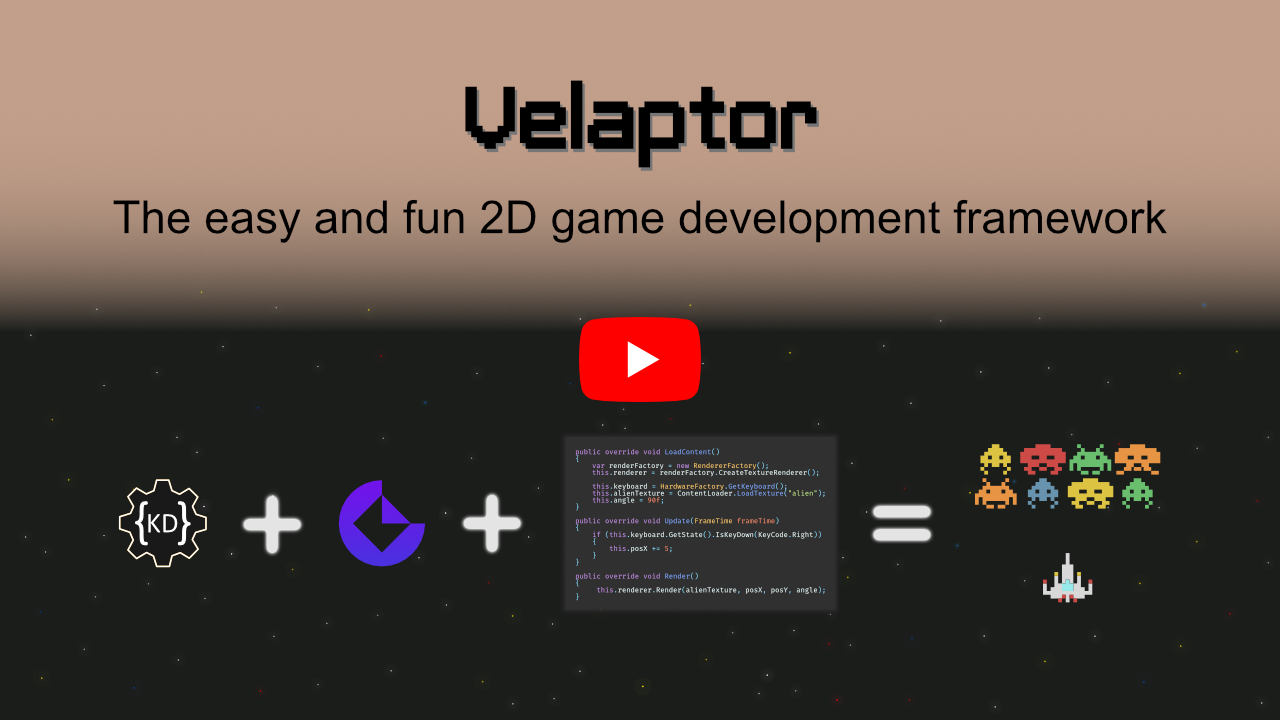This library is still under development and is not at v1.0.0 yet!! However, all major features are available, so we encourage you to use Velaptor and provide feedback. That is what open source is all about. 🥳
Velaptor is a 2D game development framework written in modern C# that strives to be simple and easy to use. Game development can be difficult, which is one reason why Velaptor was developed. It takes care of all of the lower-level, more complicated things for creating a game, like playing sound, loading graphics, managing content, multi-platform, and dealing with input, just to name a few. This way, you can concentrate on developing your game or multi-media application.
We strive for Velaptor to be cross-platform. We do this by using as many cross-platform dependencies as possible. If a cross-platform dependency cannot be found, then the appropriate platform-specific implementations will be used.
One of the goals of this library is to make it easy to use. We aim to ensure consistent naming conventions, documentation, and first-class API usability.
Velaptor can load texture atlas data for its rendering, as well as single images and sound content. The content loading system is flexible and has an API that can be extended to load custom content for your games.
Loaded content, such as images and sounds, is cached for better performance. Suppose the same content is attempting to be loaded from its source after it has already been loaded. In that case, it will be used from memory instead of reloading from disk. You can also load content by building your content loader.
Complete API documentation and tutorials can be found at docs.velaptor.io.Velaptoris powered by CASL and Silk.NET.
Are you interested in contributing? If so, click here to learn how to contribute your time or here if you are interested in contributing your funds via a one-time or recurring donation.


This software is distributed under the very permissive MIT license, and all dependencies are distributed under MIT-compatible licenses. This project has adopted the code of conduct defined by the Contributor Covenant to clarify the expected behavior in our community.










